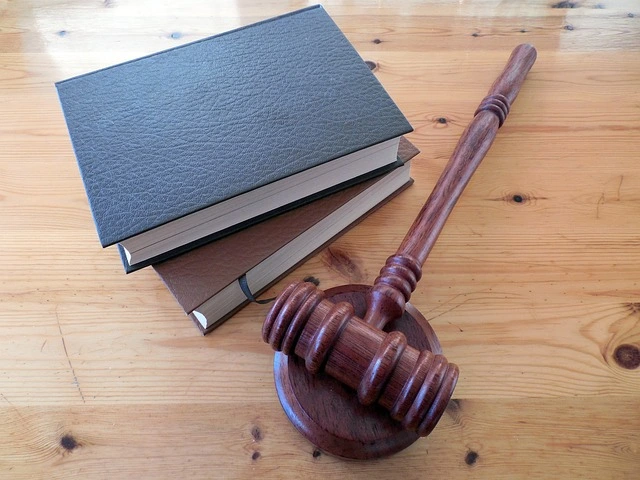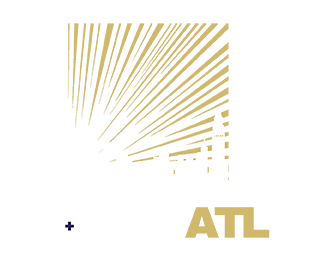Were you in a car accident in the State of Georgia and need to obtain…

Georgia law requires individuals and organizations to do all they reasonably can to prevent accidents and injuries. If this duty of care is not met, individuals who suffer injury, loss, or damage are entitled to compensation. This legal process is often complex and requires the expertise of a professional attorney to advocate for a settlement. Moreover, all of this may be overwhelming after you’ve been involved in an accident. It may even leave you asking yourself, "How do lawyers negotiate settlements?"
The road to fair compensation is often long and frustrating, which is why accident victims often hire personal injury attorneys to handle the negotiation process and answer the question of how lawyers negotiate settlements on their behalf.
If you are injured in an automobile or slip-and-fall accident or suffer a medical setback because a doctor or hospital made a mistake, you could forego hiring an attorney to contend with the at-fault party or their insurance company yourself. This would save you some legal fees, but it would likely lead to a far lower settlement. And did we mention that the process could be overwhelming? Yes, we did, even under the best of circumstances.
As the injured party in the settlement, you may face well-prepared insurance companies and experienced attorneys on the other side, both of whom are skilled at navigating the complexities of negotiations. They may attempt to take advantage of your vulnerable state.
Nathan Fitzpatrick has been advocating for accident and medical malpractice victims for more than a decade. As such, he has recovered millions of dollars in compensation for his clients. In this article, Personal Injury Lawyer, Nathan Fitzpatrick, examines the settlement process and explains the benefits of having an experienced legal professional at your side during negotiations.

The Role of a Personal Injury Lawyer in Settlement Negotiations
Accident victims usually hire attorneys because they want an experienced individual to negotiate on their behalf. However, personal injury lawyers do a lot more than hammer out settlements. Preparation is the key to a fair settlement agreement, and attorneys do some of their most important work in negligence cases long before insurance company negotiations start. If you are injured due to the negligent actions of others, an experienced attorney could prepare for settlement negotiations by:
Visiting the accident scene: Police departments investigate violent crimes thoroughly, but most car accident investigations are perfunctory. This means that important things often go unnoticed by law enforcement. To ensure that crucial evidence does not slip through the cracks, attorneys or their investigators may visit accident scenes to interview witnesses and locate cameras that police officers may have missed.
Gathering evidence: Demands for compensation must be supported by compelling evidence. Personal injury attorneys could help accident victims prepare for settlement negotiations by collecting and compiling documents, reports, records and other critical evidence.
Speaking with experts: Did the medical treatment provided by a doctor or hospital meet generally accepted health care standards? Was the car that caused the accident properly maintained? Did a property owner take all reasonable steps to protect their visitors and guests? These are the kind of questions that attorneys call on experts to answer.
Performing due diligence: Not all insurance companies approach settlement negotiations similarly. Some insurers take a proactive approach and try to settle claims as quickly as possible, while others use delaying tactics to drag the process out. Before negotiations begin, experienced attorneys take steps to find out what kind of insurance company they will be dealing with.

Attorney Tactics: Navigating the Negotiating Process
The settlement negotiation process usually begins when an accident victim or their attorney sends a demand letter to the at-fault party or their insurance company. This letter details the facts of the case, explains why the recipient is at fault and demands compensation. The demand letter establishes a point from which settlement negotiations can begin, so an attorney will often ask for the insurance policy’s maximum limit.
Insurance companies know that many accident victims need money badly to pay their medical bills and provide compensation for their lost wages. As a result, they can take weeks or even months to respond to demand letters. When insurance companies respond to demand letters quickly, it is often to make demands of their own.
These are negotiating tactics that can catch accident victims by surprise, but experienced lawyers anticipate them. Insurance companies are obligated to settle claims honestly and promptly, and attorneys may accuse them of acting in bad faith when demands for unnecessary documents or records delay the process. In most situations, the threat of a lawsuit will be enough to get the process moving.
Understanding Settlements: From Damages to Agreement
The demand letter that you or your attorney sends to an at-fault party or their insurer will "demand" compensation for your economic and noneconomic damages. If the at-fault party acted intentionally, you could also demand punitive damages. Let’s take a closer look at these three types of damages:
Economic Damages
Economic damages are paid to accident victims to compensate them for their financial losses. These damages cover losses like medical bills, property damage, and lost income, and documents like hospital or auto repair shop bills and paystubs can usually establish them. If you are involved in an accident, you should keep detailed records of all the money you spend.
Noneconomic Damages
Compensating accident victims for their pain and suffering, as well as emotional distress, involves addressing noneconomic damages, which are challenging to quantify and form a crucial aspect of the settlement negotiation process.
To establish noneconomic damages, testimony from experts such as doctors and psychiatrists is often relied upon. This calculation may be done by determining a per diem amount and multiplying it by the number of days the accident victim suffered pain or distress or by using a multiplier to increase their economic damages.
Punitive Damages
Punitive damages are awarded to punish the at-fault party rather than compensate the victim. If you are injured in an accident, you could seek punitive damages if you can prove that the at-fault party acted intentionally or maliciously. Bear in mind that punitive damages are the hardest to prove out of the three types of damages, and they are typically capped at $250,000 in Georgia. Still, that cap is lifted if the at-fault party was impaired by drugs or alcohol when they caused an accident. Understanding these distinctions is crucial in the settlement negotiation process, as they can significantly impact the outcome of your case.

The Importance of Evidence in Strengthening Negotiations
Insurance companies take settlement negotiations much more seriously when compensation claims are supported by solid evidence, and they often produce evidence of their own to justify low settlement offers. If you had preexisting medical conditions when you were injured in a car accident, slipped in a store, or became the victim of medical malpractice, the insurer could claim that your demands for compensation are excessive. An experienced personal injury lawyer would likely anticipate this strategy and go into settlement negotiations with evidence from experts to counter it. This sort of evidence is significant when accident victims seek compensation for ongoing medical treatment or future diminished earnings.
Evidence is also used to establish liability, which is extremely important in Georgia because the Peach State has a comparative negligence law. This means that the compensation accident victims receive is reduced to reflect their degree of fault. If the facts suggest that you were 20% responsible for causing the accident that injured you, the amount of compensation you receive would be reduced by 20%.
Georgia is also an at-fault state, which means police officers dispatched to car accident scenes must assign blame. This assignment of blame is why you should be very careful about what you say if the police question you after being involved in an accident. When police reports are ambiguous or reach incorrect conclusions, attorneys may call on accident reconstruction experts to provide evidence of fault.
How A Personal Injury Attorney Negotiates Settlements: Key Techniques
Personal injury attorneys are often able to secure generous settlement offers from insurance companies by threatening to file lawsuits. This threat carries a lot of weight because most insurance companies would much rather negotiate with a professional than take their chances with a jury. Juries are unpredictable, and litigation is expensive.
In 1999, a jury in California ordered General Motors to pay $4.9 billion to a family that lost six members in a car fire. The family’s attorneys discovered that GM knew its gas tanks were dangerous and could have spent between $4 and $12 to fix the problem. This infuriated the jury and led to a record award. GM could almost certainly have settled the case for far less at the negotiating table. When at-fault parties or their insurers are reluctant to settle, attorneys could remind them that negotiations are conducted behind closed doors, but trials take place in public.
The Art of Negotiation: Party-to-Party Communication
Negotiating a personal injury settlement is an adversarial process because the parties involved have very different objectives. Discussions are unlikely to be productive if emotions run high, so it is important to remain calm and stay focused. Insurance companies know angry, frustrated, or desperate people are more likely to make poor decisions, so they may use tactics designed to delay the proceedings or cause tempers to flare.
An experienced attorney will likely have encountered these tactics many times, and they could respond by being friendly but assertive. Successful negotiators can see things from the other party’s perspective, and they use this knowledge to guide discussions and keep them on track. Your attorney will have an ethical duty to act in your best interests, but that does not mean they will scream and shout to get their way.
Settlement Negotiation: Balancing Interests and Outcomes
Accident victims often go into settlement negotiations in dire financial straits. Their medical bills may be piling up, and their injuries could have left them unable to work and earn a paycheck. Before taking a hard line during negotiations, experienced attorneys speak with their clients to make sure that they fully understand their situations. If protracted litigation would create severe financial hardship, an attorney may recommend settling at the negotiating table even if a jury would likely be more generous. However, attorneys must act in the best interests of their clients and cannot tell them what to do.
Concluding Thoughts: The Final Settlement Agreement
When negotiations between accident victims or their attorneys and at-fault parties or their insurers reach an amicable conclusion, a final settlement agreement is drafted. This agreement will stipulate how much will be paid and when payment will be made. Settlement agreements are legally binding contracts, and they are sometimes called general releases because they settle all claims and prevent further legal action. These agreements may contain nondisclosure clauses or allow parties to settle without admitting fault, but attorneys are usually able to negotiate concessions in return for agreeing to these terms.
You Deserve Fair Compensation
Dealing with insurance companies is never easy, and it can be even more difficult if you were involved in an accident that left you injured and unable to work. We hope we answered the question of "how do lawyers negotiate settlements?" for our readers. Of course, you may have more if you are involved in a personal injury case. That's what we are here for – to provide you with valuable information and guidance during challenging times like these.
The Fitzpatrick Firm has represented hundreds of clients in car accidents, premises liability, and medical malpractice cases, and we know how to deal with insurance companies. If you would like to discuss your legal options with us, you can call us at (678) 607-5550 or fill out our online form below to schedule a free consultation.


